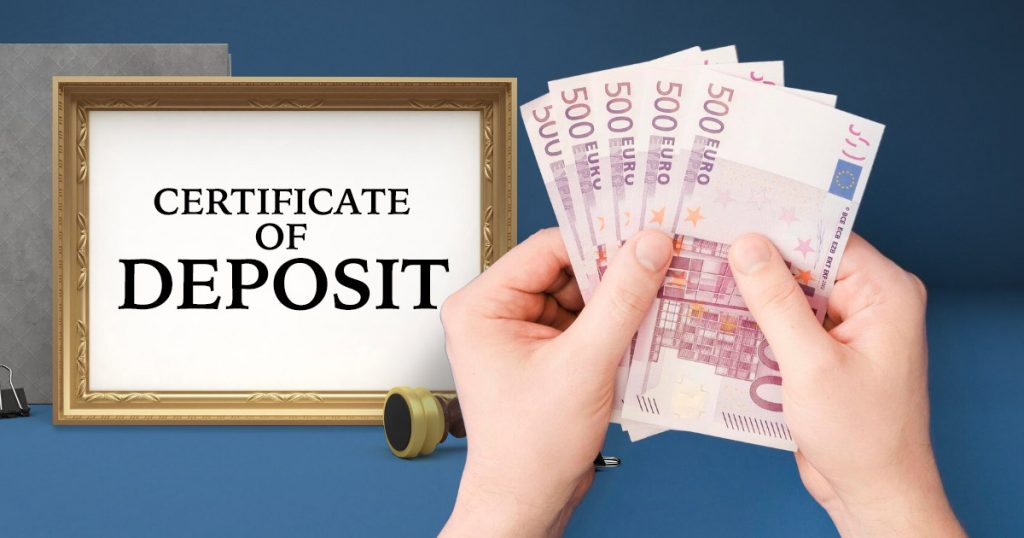A certificate of deposit gives your money a quiet place to grow, with no surprises along the way. Instead of chasing returns in the market, you lock in a guaranteed rate for a set term. Banks, credit unions, and even brokerages offer CDs, often backed by federal insurance for peace of mind. But how does a certificate of deposit work, and how does it earn interest? Knowing the mechanics helps you decide if a CD fits your savings plan or if your money’s better off elsewhere.
Understanding the Basics of CDs
A certificate of deposit lets you park your money for a set time and earn interest in return. You agree not to touch the funds until the term ends, which could be as short as a month or as long as ten years. CDs are low-risk, and if you open one at an FDIC-insured bank or NCUA-insured credit union, your money is protected up to $250,000 per ownership type, per institution. Unlike regular savings accounts, you can’t add more money after opening a CD, and taking it out early usually comes with a penalty.
How CD Interest Works and What Helps It Grow
Interest earnings on a CD depend on three things: your deposit amount, the interest rate, and the term length. Banks often set rates based on the Federal Reserve’s benchmark. When the Fed increases rates, CD yields usually rise too.
You’ll know your exact earnings upfront with most CDs since the interest rate stays the same for the entire term. That predictability makes them appealing to conservative savers. Some CDs offer variable rates, but they’re less common and carry more uncertainty.
How does a certificate of deposit work when it comes to returns? Take a $10,000 deposit in a one-year CD with a 4.40 percent APY. It can earn about $440. A three-year CD with a slightly lower 4.15 percent APY could earn closer to $1,300 over time. Longer terms may yield more total interest even with a lower rate.
Do CDs compound? Yes, and this plays a big role in earnings. Compounding means your interest earns interest. Depending on the CD, compounding can happen daily, monthly, or quarterly. CDs that compound daily usually grow faster.
That’s how a CD earns interest. Even if rates appear modest, compounding helps maximize your returns, especially if you let the funds sit untouched until maturity.
Choosing the Right CD Term
The right CD term depends on when you’ll need your money. If you’re saving for a short-term goal, go with a shorter term. For long-term goals, a five-year CD may offer better returns.
You might also explore a CD ladder, where you divide your funds among several CDs that mature at staggered intervals. When one CD matures, you can reinvest it into a longer-term CD. That way, you gain higher rates while keeping some funds accessible each year.
This approach works well if you’re unsure about locking all your money for several years. It also helps you take advantage of rising interest rates.
Early Withdrawal Penalties
With most CDs, taking out your money before the term ends triggers an early withdrawal penalty, or EWP. This fee is usually based on several days or months of interest. For instance, breaking a one-year CD might cost you 60 to 90 days of interest, while longer-term CDs may charge up to a year’s worth. In some cases, the fee might exceed your earned interest, reducing your original deposit. Review the penalty details before committing. If early access is a concern, look into no-penalty CDs. These allow withdrawals without fees, but they often offer lower interest rates.
How Does a Certificate of Deposit Work After Maturity?
Once your CD hits its maturity date, you get a short window, usually around 10 days, to decide what to do next. You can withdraw the money, move it into another account, or start a new CD. If you don’t take action, the bank may automatically renew the CD using its current rates, which might not be as favorable. Always review your options during this grace period so you don’t miss a better opportunity.
Let Your Money Do the Waiting for You
CDs don’t demand daily attention or risky decisions. They reward the simple act of waiting. In a world that pushes instant returns and fast moves, CDs prove that staying still can still move you forward.
Understanding how CD interest works turns a slow-burning savings method into a smart strategy. Compounding quietly builds your balance. Fixed terms keep you focused. And knowing how a CD earns interest gives you confidence in your decision.
So think of CDs like planting money where time and interest handle the growth. Set it. Forget it. And let time deliver the reward.
